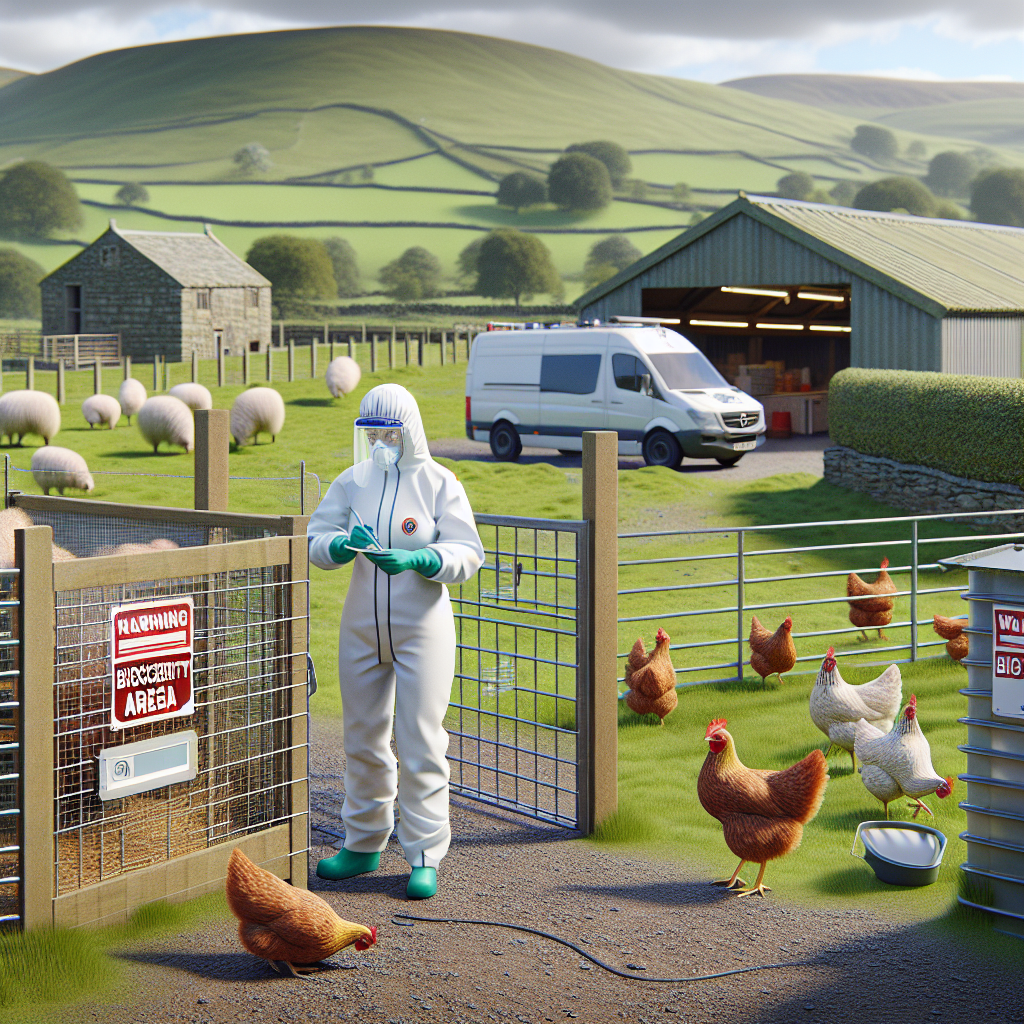Listen to this post: Bird Flu in Cumbria: What Residents Need to Know
Bird Flu in Cumbria: What Residents Need to Know
Summary
A recent outbreak of bird flu in Cumbria has put local poultry owners and farmers on high alert. The Department for Environment, Food & Rural Affairs (DEFRA) confirmed the presence of avian influenza in a flock located near Penrith, causing concerns not just for animal health but also for wider economic and public safety aspects.
The case has prompted swift action, including the implementation of a 3-kilometer Protection Zone and a 10-kilometer Surveillance Zone around the affected premises. Within these zones, strict biosecurity measures are being enforced. Movement of poultry, eggs, and other potentially contaminated items is restricted to prevent the disease from spreading.
Symptoms observed in infected birds include sudden death, swollen head, closed eyes, and a drop in egg production. DEFRA is urging flock owners to immediately report any suspected cases to avoid further spread.
While bird flu rarely affects humans, close contact with infected birds can pose a risk. Government health officials have issued guidance for people who may have been in contact with the infected site but emphasize that the risk to the general public remains low.
Veterinary professionals and environmental inspectors are now working around the clock to mitigate the situation. This includes tracking bird movements, inspecting nearby poultry businesses, and advising owners on disinfection protocols.
Residents are encouraged to stay informed through official channels and not to handle dead or sick birds. Poultry owners are advised to bolster their cleaning routines and limit outside contact to essential personnel only.
Analysis
The re-emergence of bird flu (avian influenza) in Cumbria serves as a stark reminder of the fragile balance between agriculture and infectious disease control. As one of the UK’s key poultry-producing regions, Cumbria’s economy could be significantly impacted if the outbreak isn’t contained swiftly.
Experts suggest global migratory birds are a likely vector, underlining the need for stringent monitoring systems, especially during autumn and winter when migration peaks. The UK, like many other countries, has seen a rise in avian flu cases over the past few years, driven by evolving strains and changing climatic conditions.
“We must remain vigilant throughout the season. Biosecurity is our first and best line of defense.”
Christine Middlemiss, UK Chief Veterinary Officer
Veterinary epidemiologists warn that the current strain, believed to be H5N1 like other recent outbreaks, is particularly virulent among wild birds and domestic flocks. The mortality in unvaccinated birds is alarmingly high, prompting discussions around potential vaccination rollouts—something currently under review in the UK and embraced in parts of Europe.
According to the British Poultry Council, outbreaks like these could mean severe disruption in poultry supplies and trade, along with mental health strain on farmers facing flock culls and financial loss.
Here are some notable trends and predictions:
- Increased surveillance on poultry farms even in non-affected areas
- Enhanced international collaboration to track bird migration patterns
- Potential for policy changes enabling vaccination strategies for poultry
- Retail price impact on poultry products by Q4 if outbreaks spread widely
In the long term, experts suggest integrating smart technologies like AI predictive models and sensor-driven early-warning systems in farms to minimize damage in future outbreaks.
Rural communities are encouraged to keep communication lines open, follow DEFRA guidance, and work closely with their veterinarians. Information and transparency will be key to preventing panic and ensuring containment.














